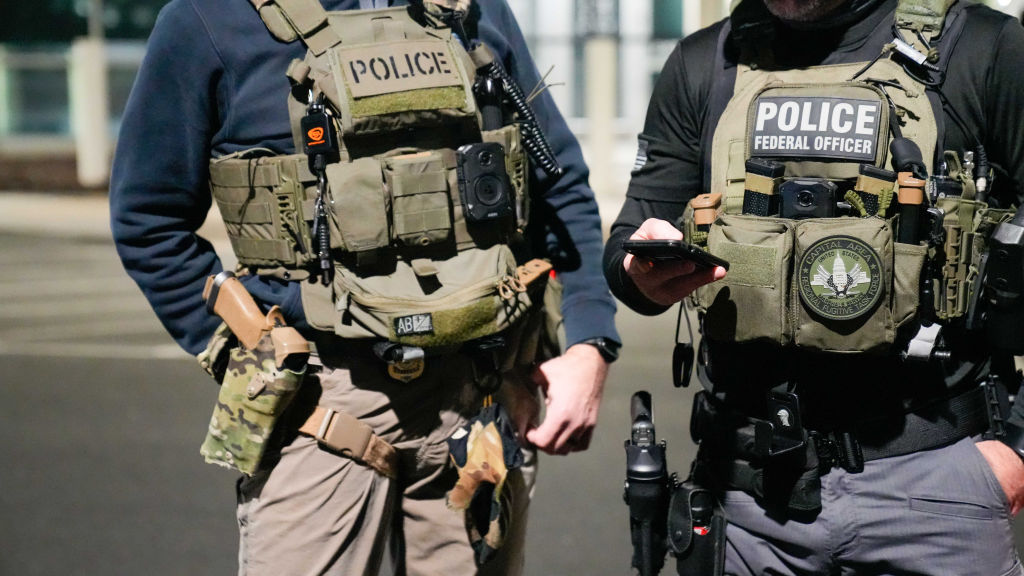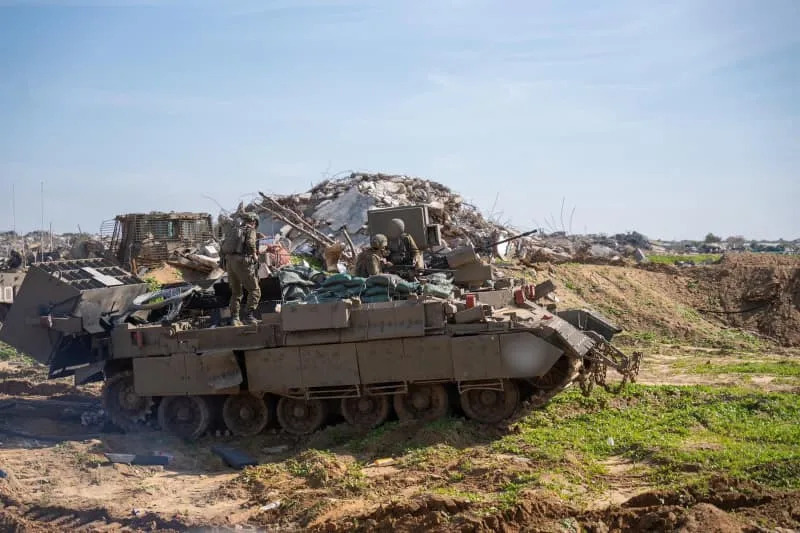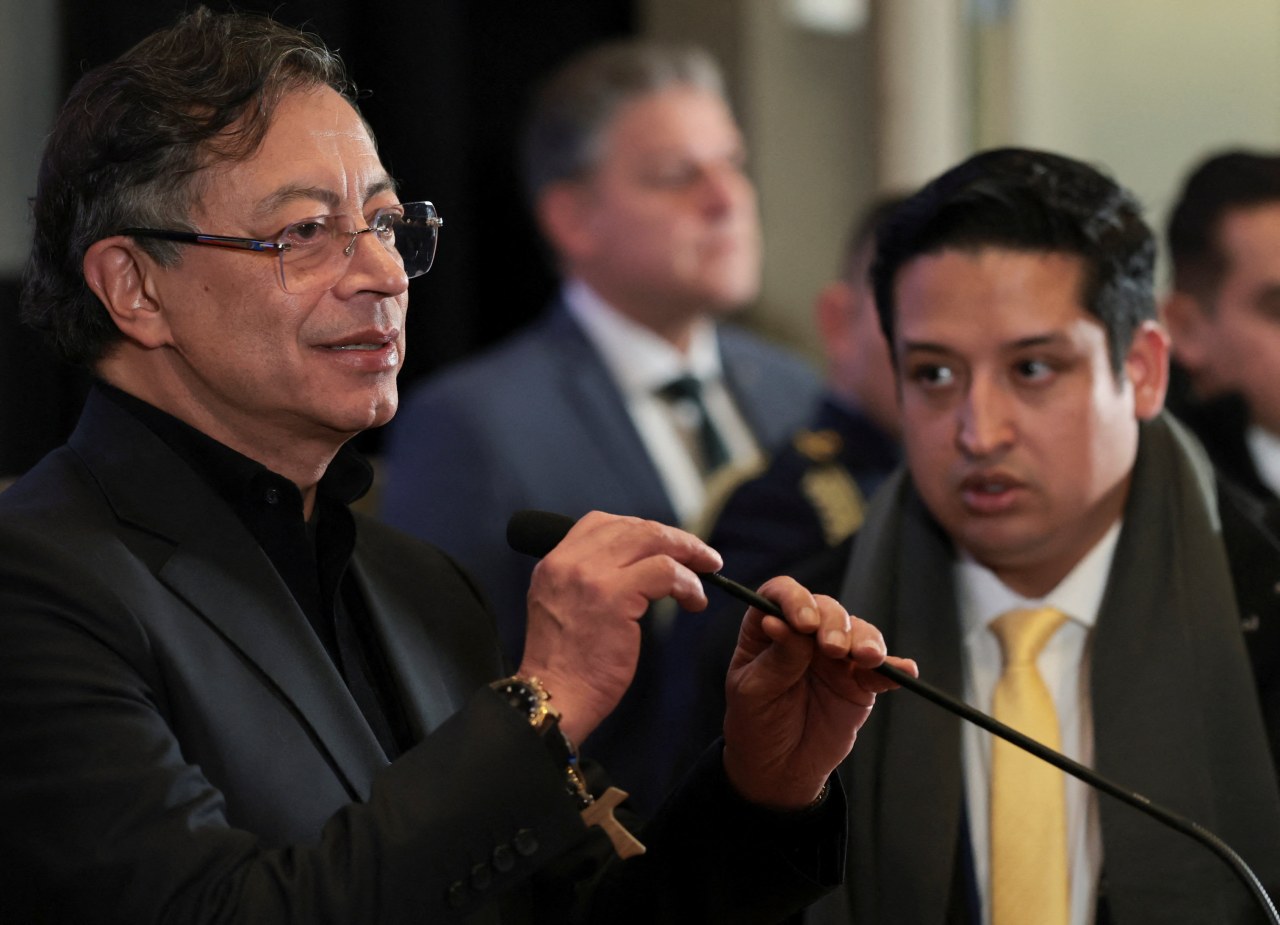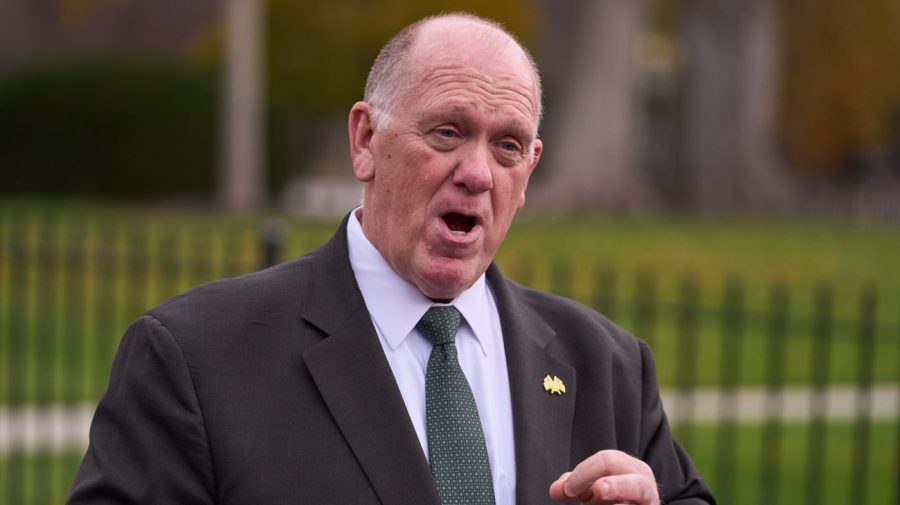
WASHINGTON, DC - FEBRUARY 4: In this handout photo provided by U.S. Immigration and Customs Enforcement, two federal law enforcement officers coordinate with other officials on the ground during an enhanced immigration enforcement operation on February 4, 2025 near Washington, D.C. (Photo by U.S. Immigration and Customs Enforcement via Getty Images)
The climate for child care workers in Washington D.C. has shifted dramatically due to a recent surge in U.S. Immigration and Customs Enforcement (ICE) operations. As a response to President Donald Trump‘s declaration of a “crime emergency,” many workers, particularly undocumented immigrants, have gone underground to protect themselves and their families.
Alma, a home-based day care provider who has lived in the United States for 22 years, now looks out cautiously from her door. If the streets appear clear of ICE agents, she will contact her coworker, also an undocumented Latina, to inform her that it is safe to come to work. The fear of potential detention has forced Alma to limit outdoor activities with the five children she cares for, which has led to two of them being withdrawn from her care. Their parents cited a lack of outdoor activities as the reason for their withdrawal.
The influx of ICE agents in the district has reportedly increased arrests tenfold, creating a pervasive atmosphere of anxiety among the predominantly Latina child care workforce. According to data, approximately 40 percent of child care workers in D.C. are immigrants, and about 7 percent are undocumented. This demographic is largely comprised of women who often bear the financial burden of supporting their families.
“What kind of life is this?” Alma, whose name has been changed for her safety, asks. She emphasizes that she and her colleagues are not criminals, but hardworking individuals striving to support their families. With the withdrawal of children from her day care, Alma will be forced to reduce her staff’s hours as she tries to fill the vacant spots.
The Multicultural Spanish Speaking Providers Association has witnessed the fallout from this crackdown first-hand. Many providers have stopped coming to work out of fear, while others are risking their jobs because they cannot afford to lose their income. The association helps these workers pursue early childhood education degrees and has seen a spike in requests for virtual classes since the semester began in mid-August.
Latina workers have gravitated toward the child care industry for various reasons, including a lower language barrier and a culturally relevant work environment. Blanca Huezo, the program coordinator at the association, notes that this industry offers them an opportunity for a fresh start without abandoning their cultural roots.
The current political climate, marked by tightened immigration policies, has compounded the challenges faced by undocumented workers. This year, the Trump administration has made it more difficult for individuals to claim asylum and has temporarily halted humanitarian protections for certain groups. Such measures have pushed more individuals into undocumented status, deepening the fear among Latinx communities.
Washington D.C. has been a sanctuary city since 2020, which previously limited law enforcement cooperation with federal immigration officials. However, this status is now under threat. In mid-August, Mayor Muriel Bowser proposed to repeal sanctuary protections, and Pamela Smith, the police chief, has since given officers discretion to share information with ICE.
The previously established protections for sensitive locations, such as schools and day care centers, have also been removed. Although there have been no reported ICE raids in day cares, the increased presence of agents near these facilities has heightened anxiety for workers and families alike.
The situation mirrors earlier events in Los Angeles, where widespread ICE raids caused significant distress among child care providers. The Multicultural Spanish Speaking Providers Association has reached out to colleagues in California to learn how they managed during those months of heightened enforcement.
In the face of these challenges, the association strives to connect workers with necessary resources, including legal clinics. Unfortunately, many of these clinics are overwhelmed with cases. For those who have chosen to stay home, organizations like Food Justice DMV are now delivering meals directly to their doorsteps.
Thalia, a day care teacher who has worked in child care for nine years, has seen her colleagues stop coming to work. Conversations among staff focus heavily on their fears of ICE. Thalia, who has also changed her name for safety, describes the feeling of constantly looking over her shoulder while commuting. “They are hunting us,” she states, reflecting the pervasive fear among workers.
As a single mother, Thalia has taken steps to prepare for the possibility of detention. She has retained a lawyer to help navigate her family’s situation should anything happen to her. Her children have been instructed to call the lawyer if she does not return home, and they know to secure tickets to Guatemala, where they would meet her if necessary.
This daily reality of fear and uncertainty has become the norm for many undocumented child care workers in Washington D.C. Their dedication to providing essential services for families continues, even as the looming threat of detention hangs over them, jeopardizing their livelihoods and the well-being of their families.







